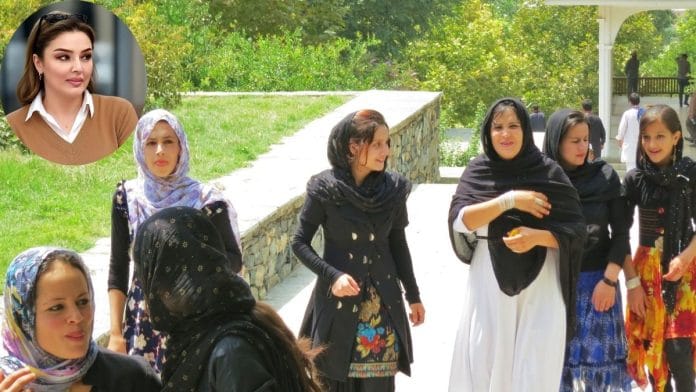New Delhi: The Taliban has declared a war on verse, with a law banning romantic poetry, criticism of its supreme leader Hibatullah Akhundzada, or any references to ideologies it deems “un-Islamic”.
The law explicitly instructs poets to craft their verses in opposition to communism, nationalism, feminism, and democracy, and urges poets to use their work to reinforce and legitimise the Taliban regime.
On Saturday, the Taliban Ministry of Justice and Ministry of Information and Culture issued the decree, calling it the “Law on Regulating Poetry Competitions”.
But Afghans, especially women, refuse to relent: “Poetry is their only unarmed weapon.” Afghan activists note how, while the ban may seem absurd, it has more serious implications for many civilians, especially women, who find their voices increasingly stifled under the Taliban. Poetry is often their only refuge.
“Since the Taliban’s return, poetry has been our only unarmed weapon. Women wrote to stay alive, to resist erasure, to say—‘we are still here’. Every verse became a way to fight silence with voice, to turn grief into defiance,” Layli Ghazal, an Afghan poet, told ThePrint.
Earlier in 2024, the Taliban banned women from reciting poetry. From then on, most Afghan women have been sharing verses online or over WhatsApp messages. Now, the new law essentially criminalises the very act of writing, expression, or dissent. It is censorship at its worst, but not unexpected.
The decree not only regulates content but also institutes an enforcement mechanism. The Afghan government will scrutinise every gathering, and only once the Ministry for Propagation of Virtue and Prevention of Vice, the Complaints Hearing Commission, and the central and provincial Ulema councils—both before and after the gathering—give their approvals, will the verses be considered as being allowed to be recited.
Poets are to avoid “praising boys and girls or inviting them for a romantic relationship with them” in their poems, according to the law. The government decides if the verse is acceptable, and if not, poets face punishment under Sharia law.
Moreover, the law extends into Afghan traditions, banning cultural expressions, such as traditional dances, clapping, whistling, and community jirgas (traditional Pashtun tribal assemblies), branding them as “non-Islamic ethics and improper customs”, according to local reports.
Also Read: ICC warrant against Taliban chief gives world a second chance to do right in Afghanistan
‘Likely to be enforced most ruthlessly in families’
Since the Taliban announced the decree, Afghan poets have been collectively protesting and writing love poems online to register their dissent.
“When denied the act of writing, it is not only a ban on poetry, it is also an attempt to tear the heart out of our bodies. But poetry is born beyond decrees and borders; it survives in exile, in whispers, in memory,” Ghazal told ThePrint.
Moreover, poetry by Afghan women “can be displaced but never silenced”.
Other poets, including Sanam Anbarin, have defiantly responded with verses of their own: “Your kisses remain, on the line of my neck, Your memories spill colour on the flower of my shirt. With the glory of your love, wherever I step, A tulip blossoms from within the breaths of my body,” Anbarin wrote in Persian, in response to the ban.
But women also understand that the implications of the law go far beyond their verses. In 2024, the country banned women from reciting poetry. The latest move follows the earlier decree, only making it more surveilled.
Afghan-Canadian tech entrepreneur and activist Sara Wahedi warns that the law is more than symbolic—it extends the Taliban’s reach to women’s private spaces.
“Now that the Taliban has done everything structurally possible to keep women indoors, their new obsession has become: what are women doing inside their homes? Many may find it absurd that such decrees are declared… but in reality, these bans are signals to the men in each household: poetry is banned, freedom of expression is banned, so keep watch over the women and girls in your care,” she told ThePrint.
“Women are finding ways to circumvent these rules through small gatherings or online classes for education, and so now, the Taliban is attempting to extend its surveillance into private homes. With many men already influenced by the propaganda, it may ultimately be within the family that these laws are, most ruthlessly, enforced,” Wahedi added.
With public spaces off-limits to women, and their education, employment, and mobility severely restricted, poetry has, so far, been a tool of resistance and a path to make their voices heard—both under threat, now.
Still, Afghan women refuse to let poetry die. As Ghazal put it, “Banning poetry is like cutting the breath of a nation. Poetry runs throughout our culture, like blood inside veins. The Taliban may try to dam this river, but rivers always find a way to flow. The silence will never last.”
(Edited by Madhurita Goswami)
Also Read: India hits out at CPEC’s expansion, calls Afghanistan’s inclusion ‘unacceptable’






